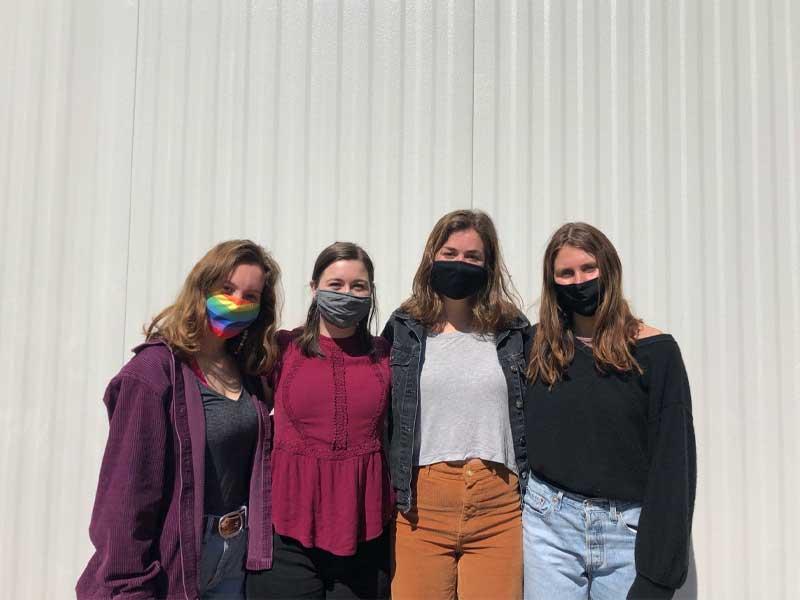Tulane students vying to win international contest for cancer screening design
A team of Tulane University biomedical engineering students has been selected as a semi-finalist in the 11th Annual Undergraduate Global Health Technologies Design Competition at Rice University.
Team CerFix will join 35 student teams from national and international universities as they present low-cost technologies they have designed to address global health challenges in settings with limited resources. Three finalists will be selected to compete in a live virtual finale on March 26. The competition is sponsored by the Rice 360º Institute for Global Health.
Team CerFix, consisting of Emma Chapel, Katherine Mattingly, Madeline Tallman and Sydney Siegmeister, developed the device as part of a capstone design course required of all biomedical engineering seniors. They described it as an “efficient, intuitive tool to effectively visualize the cervix and screen for precancerous and cancerous lesions” among women living in low-resourced rural communities along the Amazon River in Peru.
“It was such an honor to be a part of this team developing a more accessible solution to cervical cancer screening, and I hope it impacts these communities the way we intend.”
Katherine Mattingly, Tulane senior
Students were initially inspired to improve access to cervical cancer diagnostic tools and service in impoverished health care settings after working on independent research study projects through the Biomedical Innovation for Global Impact Program at Tulane. Two of the team’s members, Siegmeister and Chapel, focused on low health literacy rates among women in rural Peru, where the Tulane program has contacts and affiliations.
“This research allowed us to focus on high rates of mortality due to cervical cancer in the region and inspired our needs statement for our Team Design project that began in the fall of 2020,” Chapel said.
The need is for medical workers in Amazonian Peru to have an efficient, intuitive tool to effectively visualize the cervix and screen for precancerous and cancerous lesions. Their device incorporates the process of visual inspection using acetic acid, commonly employed by midwives and other healthcare workers in the area to determine if cancerous lesions have developed on the transformation zone of the cervix.
“The device eliminates the needs for a speculum, reducing discomfort and fear for the woman during the exam,” Chapel said. “Additionally, an endoscopic camera allows for improved visualization of the cervix and allows for a healthcare worker to make an informed decision about the development of cancer in an objective, intuitive, accessible manner.”
Regardless of where Team CerFix finishes in the competition, Mattingly said she could not have asked for a more passionate group of teammates.
“I have always had a passion for women’s health, and I was thrilled to find a group of people that share that drive,” she said. “It was such an honor to be a part of this team developing a more accessible solution to cervical cancer screening, and I hope it impacts these communities the way we intend.”
Although the Rice Global Health Technologies Design Competition does not provide a monetary awards, it does offer coaching from experts to assist finalists in developing their technology further.
Team advisor Katherine Raymond, professor of practice in the Tulane Department of Biomedical Engineering, said their design merits such development.
“The team knows the community well, understands the problem and has created a biomedical engineering solution with the potential for broad implementation that can save lives,” Raymond said. “They are committed to equitable healthcare, and understand that global impact can start with one community.”

